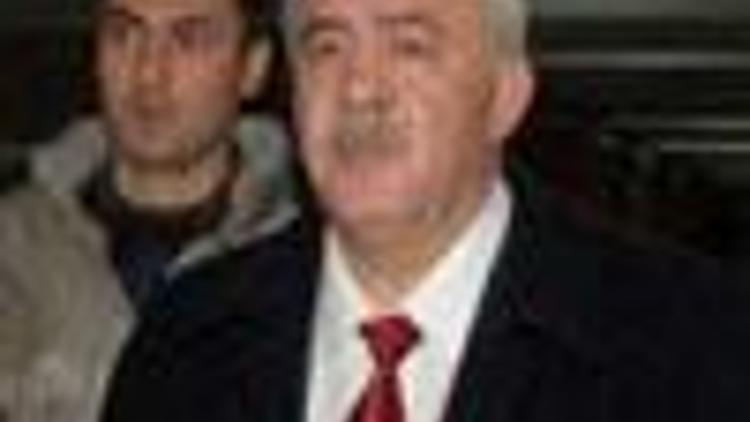Turkey's most shocking scandal back on agenda with Ergenekon
Güncelleme Tarihi:

The latest detainments in Turkey's controversial Ergenekon probe placed one of the country's most shocking and complex cases back under the spotlight after more than a decade, bringing the two opposite sides of the previous case to the same page.
In the latest wave of Ergenekon, Ibrahim Sahin, the former head of the Turkish Special Forces, was detained.�
The unit was formed to support the fight against the terror organization, PKK, but later claimed to have transformed into a gang that carried out illegal operations, including murders.�
In the late 1990s the Susurluk case, aimed at unveiling a shadowy illegal organization, known as "deep-state", began after a traffic accident involving a parliamentarian, a police official and a fugitive rightist militant.
The case uncovered the mysterious relationship between the country's mafia, police and political figures. It was claimed that Sahin and his unit were the responsible for many unsolved crimes. The suspects of the Susurluk crimes say their actions were carried out in line with state interests.
Turkish police used earth moving equipment in searches conducted on a number of properties, with media reporting that the investigations came after the discovery of sketches at the home of Sahin.
A variety of ammunition, explosives and guns, as well as some heavy arms were discovered in the searches carried out late on Thursday and Friday.
Media organs speculated the discovered arms could be the "missing guns" mentioned in the Susurluk case.
According to the claims, a cache of exported guns, used in some of the country’s unsolved assassinations, went missing. The whereabouts of the guns was never uncovered.
KANADOGLU AND SAHIN RELATED?
Police also searched the home of Turkey's former chief prosecutor, Sabih Kanadoglu, on Wednesday. Kanadoglu was not detained but his property was searched on claims of his "connections to Ergenekon gang members".
The occurrence of these two developments on the same day raised eyebrows in Turkey as Kanadoglu lead the pursuit in the Susurluk case and pushed hard to bring the shadowy relations to light.
Kanadoglu also played an important role in sentencing Sahin in the case.
The Susurluk case lasted four years, with the verdict being handed down in February 2001. Sahin and former intelligence officer Korkut Eken were sentenced to six years for "forming an illegal organization to commit crimes".
Two other suspects in the case were sentenced to four years, while the political figures in the case have never been brought to trial.
The Supreme Court of Appeals, however, over turned his sentence on the grounds that the case was built on a "deficient investigation".
Kanadoglu challenged the ruling of the Supreme Court. "The Susurluk case is the symbol of aspirations for a clean society. The Turkish public has been waiting with patience and hope to see the incident enlightened, as well as the crimes determined and those criminals convicted, if a crime exists," he wrote in his appeal.
The court later ruled in favor of Kanadoglu's demand and approved the verdict of the lower court, preventing a possible period of prescription.
THE SUSURLUK SCANDAL
On Nov. 3, 1996, a car rear-ended a truck in Susurluk town, which later became the namesake of the infamous case. Mehmet Ozbay, Police Chief Huseyin Kocadag and model Gonca Us died in the accident, while Sedat Edip Bucak, a deputy from the center-right True Path Party (DYP), was injured.
It was later noted that Ozbay was an alias used by fugitive nationalist militant Abdullah Catli, the subject of an outstanding arrest warrant for the deaths of seven left-wing students in the 1970s; a time when intense clashes were ongoing between leftists and rightists that brought the country to the brink of a civil war.
Media had interpreted the accident as proof of illicit links between the country’s politicians, police and mafia.
Prosecutors maintained that a group of individuals, believing it was impossible to deal with people aiding terrorist organizations through legal means, had decided to form a gang.
The prosecutors also demanded the suspension of the immunity of Bucak and Mehmet Agar, who resigned as interior minister after the crash. Most of the trials ended with verdicts of not guilty.
The Susurluk scandal, as the matter is referred to these days, still creates concern. Agar was re-elected to parliament in 2002 as an independent, but his bid to become the DYP leader in the 2007 elections ended with defeat, opening the way for his trial.
The so-called "Susurluk gang" is blamed for many unsolved murders of mafia leaders, businessmen with close ties to the terror organization PKK, as well as other prominent figures during the 1990s.
In 2008, Ayhan Carkin, a police officer who was tried in the Susurluk case and who had worked with Sahin, told in a television program that the gang had killed 4,000 people to protect the interests of the state.

